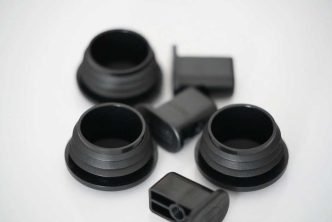The Internet of Things (IoT) has emerged as a transformative force in the manufacturing industry, redefining the landscape of production, efficiency, and innovation. By integrating interconnected, intelligent devices into manufacturing processes, IoT offers unprecedented opportunities for enhancing productivity, reducing costs, and driving industrial advancement. This article explores the role of IoT in manufacturing, highlighting its applications, benefits, challenges, and potential future implementations.
Table of Contents
The Advent of Smart Manufacturing
Foundation of IoT in Manufacturing
IoT in manufacturing, often referred to as the Industrial Internet of Things (IIoT), involves the use of a network of sensors, machines, and devices interconnected and communicating via the internet. This integration enables the collection, exchange, and analysis of data, leading to more informed decision-making and optimized processes.
Transition to Industry 4.0
The implementation of IoT is central to the evolution towards Industry 4.0, the next phase of industrial revolution characterized by automation, data exchange, and manufacturing technologies. IoT serves as the backbone of this transformation, ushering in an era of smart factories where machines and systems are capable of self-optimization and autonomous decision-making.
Applications of IoT in Manufacturing
Real-time Monitoring and Predictive Maintenance
One of the most significant applications of IoT in manufacturing is real-time monitoring of equipment and processes. Sensors collect data on machine performance, letting you know when your controllers, drives, or any other equipment may be in need of repair or replacement before reaching a failure point. By anticipating equipment failures before they occur, manufacturers can reduce downtime and maintenance costs, ensuring uninterrupted production.
Supply Chain Optimization
IoT devices track materials from suppliers through production to final delivery, providing real-time visibility into the supply chain. This transparency helps in identifying bottlenecks, optimizing inventory levels, and improving overall supply chain efficiency.
Quality Control and Assurance
IoT technologies enable continuous monitoring of production quality. Sensors and cameras detect defects or deviations in real-time, allowing for immediate correction and ensuring that the final product meets quality standards.
Energy Management
IoT applications in energy management involve monitoring and optimizing energy consumption in manufacturing facilities. Smart sensors can identify areas of energy wastage, leading to more efficient use of resources and reduced operational costs.
Benefits of IoT in Manufacturing
Enhanced Efficiency and Productivity
IoT-driven automation and data analytics result in more efficient manufacturing processes. By minimizing manual intervention and optimizing machine performance, IoT significantly enhances productivity.
Cost Reduction
IoT helps in reducing costs associated with production, maintenance, and energy consumption. Predictive maintenance decreases the frequency and cost of equipment repairs, while optimized energy management leads to lower utility bills.
Improved Safety and Compliance
IoT devices can monitor workplace conditions, ensuring compliance with health and safety regulations. For instance, sensors detecting hazardous gases or extreme temperatures can trigger alarms, enhancing worker safety.
Customization and Flexibility
IoT facilitates greater customization in manufacturing. Manufacturers can quickly adapt production processes to meet specific customer requirements, offering a higher degree of product customization.
Challenges and Considerations
Data Security and Privacy
As manufacturing facilities become increasingly connected, concerns about data security and privacy arise. Protecting sensitive information from cyber threats is a major challenge that manufacturers must address.
Integration with Existing Systems
Integrating IoT technologies with legacy systems can be complex and costly. Manufacturers need to balance the benefits of IoT with the practicalities of upgrading or replacing existing infrastructure. However, many IoT devices are functional with and rely on more classic automation devices like automation PCs.
Skilled Workforce
The shift towards IoT-enabled manufacturing requires a workforce skilled in new technologies. Training and education are essential to equip employees with the necessary knowledge and skills.
The Future of IoT in Manufacturing
Advancements in AI and Machine Learning
The integration of Artificial Intelligence (AI) and Machine Learning (ML) with IoT is set to further revolutionize manufacturing. These technologies will enhance the analytical capabilities of IoT systems, leading to more intelligent and autonomous decision-making.
Increased Connectivity and Collaboration
Future developments in IoT will likely focus on increased connectivity and collaboration between machines, systems, and humans. This interconnectedness will foster more collaborative and flexible manufacturing environments.
Sustainability and Green Manufacturing
IoT will play a crucial role in driving sustainable manufacturing practices. By optimizing resource usage and reducing waste, IoT contributes to the development of greener, more environmentally friendly manufacturing processes.
Conclusion
The Internet of Things has redefined the manufacturing landscape, bringing about a paradigm shift in how production processes are managed and executed. As IoT continues to evolve, its potential to further enhance efficiency, reduce costs, and drive innovation in manufacturing is immense. Embracing IoT is not just about technological advancement; it’s about moving towards a smarter, more connected, and sustainable future in manufacturing.





